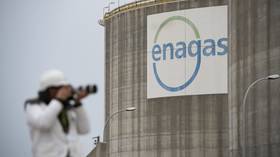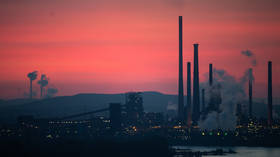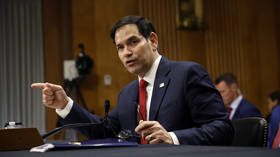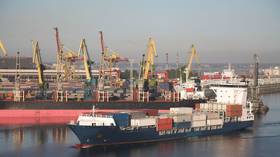EU divided on gas rationing

The governments of Spain, Greece and Portugal have all stated that they oppose an EU scheme that would see them slash their natural gas consumption by 15% over the winter.
Announced by the European Commission on Wednesday, the ‘Save Gas for a Safe Winter’ proposal would entail EU member states reducing their gas use by switching to other power sources and ordering their citizens to ration their own usage. If the commission’s proposal is adopted, member states would be required to report on their progress toward the 15% target every two months, and EU authorities would have the power to declare a state of emergency and make the reduction mandatory.
"I deeply regret to say that Spain does not support this proposal," Spanish Energy Minister Teresa Ribera said shortly after its announcement. Mentioning that the plan had been revealed without a debate in the European Council, Ribera declared that the commission “cannot demand a sacrifice” when “they have not even asked our prior opinion.”
“Unlike other countries, we Spaniards have not lived beyond our means in terms of energy,” Ribera added.
Echoing former German Chancellor Angela Merkel’s assertion in 2009 that Mediterranean countries “were living beyond their means” in the runup to the financial crisis, Ribera’s remark was likely aimed directly at Berlin. Having relied heavily on Russian gas to power its industry, Germany is currently facing economic ruin after voluntarily canceling the Nord Stream 2 gas pipeline and backing EU sanctions on Moscow.
Greece came out against the plan a day later, with government spokesman Giannis Oikonomou telling reporters on Thursday that Athens “does not agree in principle with the EU proposal for a 15% reduction in gas usage.” Oikonomou said that the government has “submitted our own proposals” to the EU instead. Greece depends on Russia for 40% of its natural gas.
Portugal too “does not accept” the EU’s proposal, Energy Minister Joao Galamba told Portuguese newspaper Publico on Thursday. "There are countries that have not protected themselves and are now asking for help,” he said in an apparent reference to Germany, adding that a bloc-wide rationing program fails to take into account the fact that Portugal lacks pipeline connectivity with the rest of Europe, meaning that gas saved in Portugal could not be used to cover shortfalls elsewhere.
While Spain, Greece and Portugal have spoken out publicly against the plan, officials in Italy, Poland and Hungary also have their reservations, Bloomberg reported on Thursday. Hungary’s opposition is unsurprising, as Budapest has staunchly opposed the sanctioning of Russian oil and gas during successive rounds of EU sanctions on Moscow.
European Commission President Ursula von der Leyen described the plan as an attempt to prepare for a “total cutoff of Russian gas,” accusing Russian President Vladimir Putin of “blackmailing us” with energy.
Putin stated on Tuesday that Russian energy firm Gazprom is “ready to pump as much as necessary, but [the EU] closed everything themselves.” Putin has previously called the bloc’s sanctions on Russia “insane and thoughtless,” and accused European leaders of committing economic “suicide” under the direction of the US.














